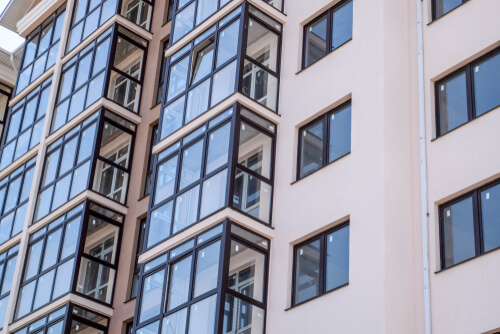With the onset of COVID-19 landlords of large residential properties face a wave of new decisions in respect of the properties they let. It is critical that landlords have in place effective measures to ensure the ongoing safety of their tenants.
This article highlights some of the key points landlords should consider to ensure they are adequately prepared during this time.
Rent Reduction / Deferment
Notwithstanding government support packages aimed at curbing the economic impact of COVID-19, many tenants will find themselves out of work as a result of the loss of business brought about by COVID 19 and the lockdown announced 23 March 2020. This will clearly impact on a tenant’s ability to pay rent and many landlords will already be experiencing problems with delayed or non-payment.
Although there has been statutory intervention to prevent evictions, there is currently no obligation on landlords to reduce rent payments. Non-payment will remain a breach of the tenancy agreement. Practically speaking however, many landlords will seek to accommodate the tenant by making allowances in one of the following ways:
- taking a more relaxed approached to non-payment which may include the cessation of ‘chaser letters’ and in no situation instigating possession proceedings during or for a period after the lockdown ends;
- formal rent deferment for anywhere between 1 and 3 months with or without a payment plan for repayment in the future;
- a permanent rent reduction; or
- a temporary suspension.
All the above will of course have a significant impact upon the landlord’s cashflow, most of all rent reduction/suspension. This should also be considered in respect of service charge payments and ground rent payments for long lease hold tenants who may be similarly unable to pay. A deficit in the service charge account could have serious implications on the maintenance of the building and as will be discussed below, any ancillary services aimed at curbing infection that are included in the service charge.
An open dialogue with the tenant by the landlord or managing agent will clearly be key in appropriately managing these payments and should help landlords anticipate rent shortfalls well in advance, allowing alternative funds to be put in place. For more information on possession proceedings see https://wslaw.co.uk/insight/possession-claims-and-the-coronavirus-act-2020.
Sanitation
Further sanitation measures should work on top of existing cleaning services and may include periodic deep cleans of common parts of the building and sterilisation on key surfaces such as door handles or lift buttons.
An essential aspect of this will of course be communication with the tenants to ensure they are conforming with government guidance on self-isolation, personal hygiene and maintaining a safe distance from other households. If not already in place, landlords should ensure that sufficient signage is in place in and around the building advising tenants of this and, if appropriate, should be delivered to each flat.
Day-to-Day Building Services
Many ordinary services provided to tenants will be impacted by COVID-19. Given the introduction of a lockdown, there is now a far higher level of home deliveries. Landlords should consider whether the provision of a concierge service can be safely maintained throughout the lockdown and what impact this will have on receiving deliveries. Self-isolating tenants may be dependent on these deliveries for essentials.
Thought should also be given to repairs. The landlord remains under the same contractual and statutory obligations in respect of maintenance of its units, including relevant safety checks such as gas certificates. The Government has advised that essential works are to continue and landlords should have in place policies to ensure the safety of workers. Landlords should also have contingency measures in place where access is refused and this presents a hazard to one or more tenants.
Critical Works including ACM and other cladding
Considering larger scale essential works such as ACM cladding remediation, the Government has indicated that such works are to continue in its ‘Remediation and COVID-19: Building Safety update’ of 27 March 2020. Despite this, the construction industry has shown understandable caution in continuing such works where to do so might put its own workers at risk.
Landlords should ensure that wherever possible such works continue and to the extent possible facilitate the safety of construction workers by doing what they can to provide safe working conditions. Effort should also be made to limit exposure of the workers to tenants. To this end, the Construction Leadership Council have provided further guidance for the construction industry in guidance on site operating procedures and how construction sites should operate safely during the COVID-19 pandemic
Fire Safety
Fire safety should be paramount during the lockdown. Owing to the increased number of people at home, kitchen and electrical fires are far more prevalent during this time.
A number of buildings may already be under ‘waking watch’ whereby the entire premises is patrolled for early signs of fire. The guidance of the National Fire Chief’s Council is that every effort should be made to maintain these waking watches. Where staff availability is impacted, the guidance advises that vacancies may be accommodated by the use of a common fire alarm.
Ultimately landlords are being advised to take a pragmatic approach in the months going forward. This alongside good planning and communication with tenants and managing agents will help minimise disruption and keep ASHT and long lease tenants safe.



